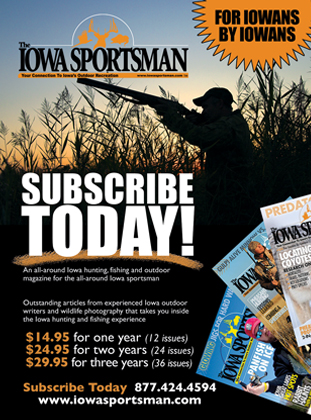Gundog FAQ’s
Gundog FAQ’s
By Ryan Eder
We thought for this month we would get away from covering one gun dog related topic and try to answer a collection of common questions that we receive from both clients and prospective clients regarding their hunting dogs. I have taken notes on common questions I have been receiving via email, phone or social media and will share the Q & A in this article. To organize things a bit, I have grouped the questions into two categories; Puppies & Training.
Puppies:
Where should I get my puppy from?
I’d be a terrible salesman if my standard answer wasn’t “From me!” but let me elaborate. By no means am I against rescuing dogs, in fact I highly recommend it for folks seeking a companion animal. When it comes to working dogs, I tend to recommend seeking a breeder who breeds dogs that do the very work you are looking to do, and exemplify the traits and qualities you are seeking in a dog. I mean this both in and out of the field.
Why do genetics matter so much?
If you think about what we are asking our dogs to do, they must be highly trainable, very healthy and most importantly have an internal fire to work. That fire is not necessarily an inherent trait in all gene pools of a dog breed. If you wanted a draft horse to pull heavy wagons, you wouldn’t buy a small horse, right? No, you would buy a big strong horse bred for pulling and doing the job. Dogs are no different. Where people get confused is when they do buy a sporting breed of dog but do not see the qualities necessary to be a successful hunting dog. “But I bought a retriever, why won’t this dog do it?” While the answer to that question is likely a loaded one, knowing your dog’s genetics can really help you establish a breeding program that specifically breeds dogs capable of certain goals.
What age should I begin training my puppy?
Training begins the day you bring the puppy home, but make sure your “training” is appropriate for the age and stage of your dog. Seven week old puppies are not supposed to be retrieving birds several times per day and cannot be held to standards above their capabilities. My advice is focus on socialization with young puppies. Get them into a routine in the home, form a bond and begin working on very simple training such as crate training, house breaking, sitting for a treat and loading into the kennel. It is a work in progress and takes time. Include your dog in your day to day life and keep them happy and confident. It will pay dividends later!
When can I begin field work with my puppy?
This question comes in frequently, but the truth is all training is field training. Socializing your puppy early on is absolutely a pre-cursor to the “field training” (gunfire, birds, water, etc). Of course I know what the client is asking; they want to know when they can expose their dog to the “fun stuff”. While I’m not saying these are concrete, I like to expose puppies to birds early (9-12 weeks) using clip wing quail or pigeons. I pull flight feathers so that the birds can flutter, but not fly. The pups usually are enticed and they chase the bird rigorously. Nurturing prey drive early is essential. In terms of gunfire, I first start by socializing my dogs early on around people and new places. I like my pups to be confident in their surroundings, which will help when it is time to expose them to loud noises (sometimes loud noises occur naturally with loud cars, motorcycles, etc.). Water is a tough one; some puppies take to it right away and others take time. Please do not force this with young dogs, let them set the pace. I always try to let them take interest in water by following me, or other dogs, or maybe a favorite toy into the water. Some pups are swimming at 10 weeks old and I’ve had others take until 5 months of age! If you push this, it will back fire on you, guarantee it!
Training:
What training program should I follow?
There are several great training programs available to gun dog owners. Of course, they vary depending on the type of dog you have (our kennel focuses on retrievers for both upland and waterfowl hunting). Do your research and look at your options; regardless of what program you choose, having some kind of guideline to follow will be an advantage in your dog’s training.
Should I “Force Fetch” my dog?
If you asked this question to ten people, you’d likely get ten different answers. My answer is YES. In short, here are a few reasons why:
• Clean retrieves to hand are nice to work with.
• If your dog drops the bird early, and the bird is still alive it may run or escape.
• The trained retrieve (aka force fetch) is the foundation for advanced handling work in your dog (not limited to retrievers; there are other versatile breeds that run blind retrieves).
Why do you run hunt tests?
For me I love the hunt test game; it serves as a great off-season activity for my dogs but also gives us metrics to follow and strive for in training. By working towards hunt test titles at various levels, it helps guide our training efforts to know what we need to work on. As a breeder (or consumer) hunt test titles help illustrate desirable qualities in our dogs. Whether you are selling dogs, or buying a dog, it is nice to see dogs that earn accomplishments in the hunt test organizations and prove that they are highly trainable and talented animals.
Do I want a retriever, pointer or spaniel?
Decisions, decisions! I’ve been lucky enough to hunt over all of the above and every dog makes a great case for why you should own one. Ask yourself what kind of hunting you want to do. Ask yourself what kind of climate you live in and overall what your hunting style is. If you answer those questions honestly, it will help narrow down your selection. If you are only hunting waterfowl and face various climate conditions, I like the retrievers for their tolerance to tougher conditions. However, do not assume that spaniels and some pointing breeds cannot do the same because they can! If you prefer upland hunting, and wish to have a calmer pace, I love hunting over the pointers. Even though they cover ground and can hunt all day, if they hold their point you are able to take your time setting up your shot, and do not have to keep up with the dog. Remember, the best hunting dog there is, is a well-trained dog!
While most of these questions are generic, we compiled them from real feedback and wanted to help readers’ gain further understanding regarding dog training. If we can help any further, please do not hesitate to contact us through our kennel website at www.southforkretrievers.com.

